
Juan Michelle Martin, PT, DPT
Visit types: Office/Hospital/Virtual
Spoken languages: English
Interpreting services for other languages: No
Philosophy of care and typical treatment strategies:
I believe that patients with endometriosis need to be approached from a comprehensive and holistic perspective. These clients often will have so many things going on. My sessions will typically include pelvic floor therapy comprising of manual therapy, myofascial release, and visceral mobilization, mobility work, visual imagery, relaxation, neuromuscular re-education, and education. They will also entail lifestyle habits and changes as necessary, nutrition components, wellness, and lifestyle management. I love working collaboratively with other professionals and often refer these clients as needed to other professionals who can also serve them, including nutritionists and functional medicine providers, GI specialists, GYNs, etc.
What should be known about you:
I founded my practice, JMM Health Solutions, on being a beacon within my community. When clients come in, they are not a number, nor do I want them to feel that way. They need to feel cared for, respected, and listened to. That might mean that they need a listening ear, a shoulder to cry on, and not just a clinician, and I provide that within my office. Patients with endometriosis have been through so much, and I believe that compassionate care is truly the way to serve this population best.

Dr. Shanti Mohling
Shanti Mohling, M.D.
Dr Shanti Mohling – Endometriosis Specialist, Minimally Invasive Gynecologic Surgeon
Summary: Dr Shanti Mohling, an experienced endometriosis specialist based in Portland, OR, takes a multifaceted approach to treating pelvic pain and endometriosis. Dr Mohling believes endometriosis originates during embryogenesis, and hormonal changes at menarche trigger its progression. Her philosophy combines a deep understanding of the condition’s genetic and environmental factors. With a focus on complete excision, Dr Mohling works to arrest the disease and improve her patients’ quality of life. She offers various hormonal therapies, including progestin-only contraceptives and bioidentical hormone therapy for surgical menopause patients. For pain management, she uses a combination of NSAIDs, nerve modulation, and sometimes Botox for pelvic floor myalgia. Dr Mohling’s holistic approach also includes collaboration with specialists in areas like functional medicine, pelvic floor physical therapy, and nutritional support, making her a compassionate and thorough provider for patients seeking expert care for endometriosis.
Incorporating her expertise and dedication, Dr Shanti Mohling is a trusted name in Portland for patients looking for comprehensive care in treating endometriosis and pelvic pain.
City: Portland, OR, USA
Philosophy: I believe endometriosis has multifactorial origins. Regarding surgical management, I treat it as though its origin begins with development during embryogenesis as the müllerian system is migrating. I believe most patients with endometriosis are born with it and that it flourishes during menarche with advent of hormonal changes. I also believe that there is a component of environmental impact such that a patient with genetic predisposition (and abnormal cells from embryogenesis) may do worse with an inflammatory environment (foods, pollution, stress, etc.). However, I believe that complete excision should mostly arrest disease and my treatment is based on mullerianosis as the genesis.
Medication: I work with patients in a collaborative fashion to arrive at the best option for each individual.
Hormonal therapies: Progestin-only contraceptives, combination oral contraceptives, Levonorgestrel IUD, Nexplanon occasionally. I almost never offer Depo Medroxyprogesterone acetate (due to side-effects) or GnRH analogs (due to side-effect profile and long-term negative effects). I have worked with bioidentical hormone therapy for over 20 years and also incorporate that when appropriate, such as in patients who have undergone surgical menopause or patients who do not tolerate synthetic hormonal therapy.
For pain: NSAIDS, occasionally narcotics, naltrexone and occasionally Medical Marijuana when appropriate. Sometimes neuromodulators such as gabapentin and pregabalin. I often recommend amitriptyline, especially in the case of interstitial cystitis. Finally, I sometimes prescribe compounded vaginal suppositories which may include valium, baclofen or ketamine.
I also use Botox for pelvic floor myalgia on a routine basis.
Approach to Persistent Pain After Surgery: I believe most pelvic pain is multifactorial: endometriosis, interstitial cystitis, bowel dysfunction (to include IBS, SIBO, Intestinal Permeability, gastroparesis), myofascial pain and neuropathic pain. At the initial work-up, I attempt to identify each of these contributors. Yesterday, I saw a postop patient who had had extensive endometriosis excised and confirmed by pathology. She had persistent pain. We reviewed her history of bowel symptoms, history of schistosomiasis and giardia (she had worked in Africa) as well as an exam suggesting pelvic floor myalgia. She will now work with a functional medicine specialist and pelvic floor physical therapist. We also discussed hormonal options (progesterone has a distinct effect on gastric function). This is very typical of my approach.
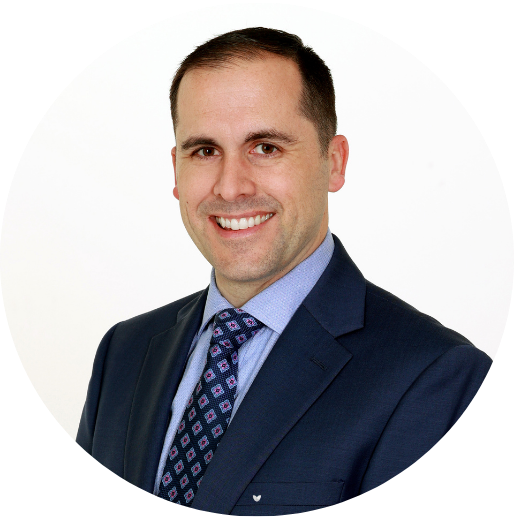
Dr. Chris Kliethermes
Chris Kliethermes, M.D.
Dr Chris Kliethermes – Endometriosis Specialist, Minimally Invasive Gynecologic Surgeon
Summary: Dr Chris Kliethermes is a compassionate endometriosis specialist and minimally invasive gynecologic surgeon based in Troy, MI. With extensive experience and a deep understanding of endometriosis, Dr. Kliethermes is known for his commitment to optimal excision and restoring normal anatomy—an approach influenced by his training under Dr. Patrick Yeung. Patients seeking expert care appreciate Dr. Kliethermes’s balanced perspective on treatment options and his personalized approach to managing endometriosis pain. Whether you’re researching Dr. Kliethermes or looking for insights into Chris Kliethermes’s surgical philosophy, his profile provides both clinical expertise and patient-centered care.
In addition to surgery, Dr. Kliethermes supports patients with education on hormonal options and collaborates closely with pain specialists, physical therapists, and fertility experts. His goal is always to guide each patient toward effective, long-term relief with warmth and professionalism.
City: Troy, MI, USA
Philosophy: At this point, I take all theories into consideration as possible origins for endometriosis. I inform my patient about the Mullerianosis, stem cell/retrograde flow, or vascular dissemination theories. My goal is to best treat my patients and, until we learn more about the disease, try to look at aspects of research being conducted for origins. Training with Dr. Patrick Yeung in residency, I fully agree with his teachings of optimal excision and restoration of normal anatomy as essential to properly treat the disease surgically.
Medication: Medication does not treat endometriosis, but more masks symptoms. I do offer patients who are not interested in pregnancy hormonal suppression following surgery, pending their postoperative pain, as I have seen decreased pelvic pain in patients with a levonorgestrel IUD. For patients that are absolutely adamant they want to avoid surgery (which is extremely rare) the IUD is again my preferred method. I often will educate pre- and post-op patients regarding the GnRH analogs and give them the autonomy to choose these methods if desired, although I do believe the benefits of these medications do not outweigh the cons.
Approach to Persistent Pain: For patients with persistent symptoms after surgery, I have multiple options, assuming optimal excision. Our hospital system has access to pain specialists, physical therapy, other surgical specialties, and nutritionists. Thus far, I have only had to utilize them sparingly, but I am lucky to have their services accessible. There are also local sex therapists. I work closely with and often get referrals from our REI department, with whom I consult frequently for fertility concerns.
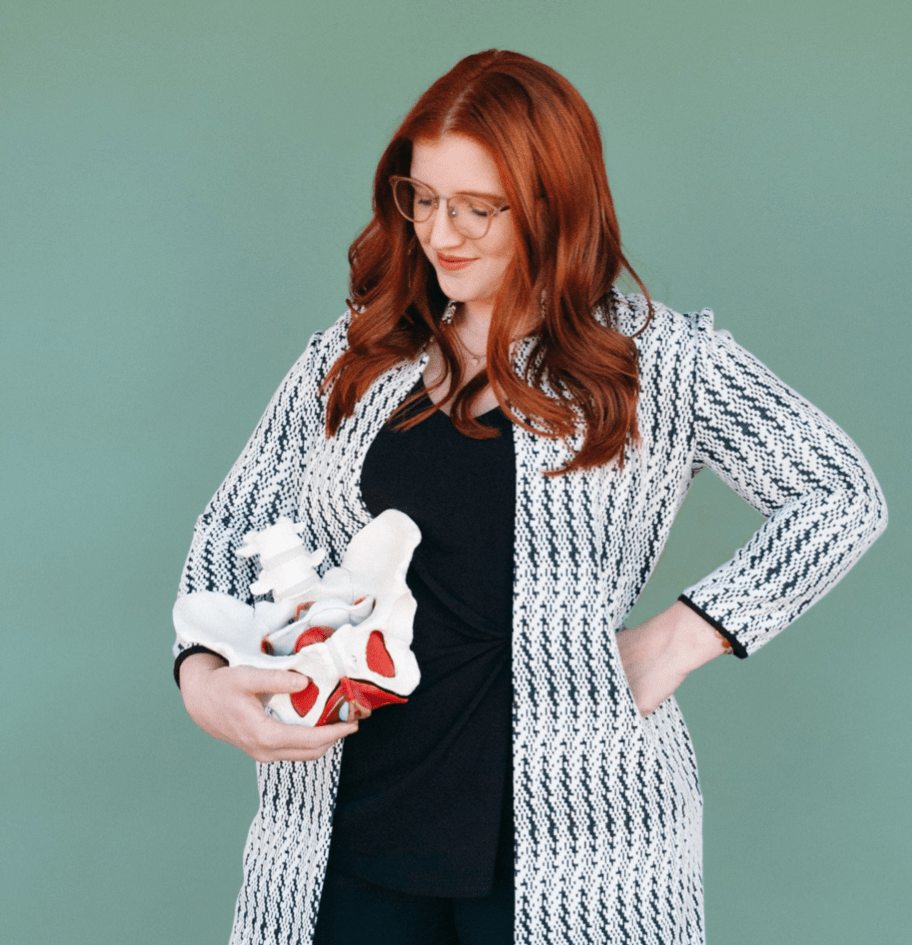
Rebecca Patton, PT, DPT
Visit types: Office/Hospital
Spoken languages: English
Interpreting services for other languages: Yes
Philosophy of care and typical treatment strategies:
If I suspect endo based on their symptoms, my main priority is getting them to an endo specialist for a formal diagnosis and surgery.
That can take a few months for them to get paperwork together and finally see the specialist. In that time during physical therapy, we focus on pain management.
This is typically in a calm environment (dim lighting and meditation tones are helpful to relax the nervous system). I provide an environment that helps downtrain the CNS with visceral and nerve mobilization, passive mobility, and breathing techniques.
After surgery,
It depends on the person and their individual goals. Some want to continue visceral mobility. Some want to focus on pelvic floor retraining and possibly integrating dilators. Some are trying to manage bowel and bladder symptoms.
Others are trying to get back to exercise or recreational activities.
I use dry needling if appropriate and if I feel someone’s nervous system will respond well.
Improving management of bowel and bladder hygiene can be accomplished through pelvic floor retraining, breath work, CNS down training, visceral and fascism mobility and getting back to joyful activities.
Interdisciplinary care and communication is important and can involve the surgeon/specialist, GYN, PCP, nutritionist, acupuncturist, GI/colorectal doc, or urogynecologist just to name a few.
I try to help my patients navigate this complex system so they can prioritize their care and not feel as overwhelmed.
The most important thing I have learned is that although endo can have a lot of similar symptoms, every patient is individual in their goals, factors that exacerbate their symptoms, activity tolerance and overall lifestyle. I try to meet them where they are at for treatment and goals may change over time.
More information:
My main priority is providing a welcoming space for LGBTQ+ community. I am an advocate for gender-inclusive language, inclusive and affirming intake paperwork, and not assuming heteronormative or cisnormative lifestyle when asking my patients about sexual health and gender identity.
I always have my pronoun pin on.
I want to normalize transgender individuals seeking care for pelvic physical therapy.

Rebekah Slafka, PT, DPT
Visit types: Office/Hospital
Spoken languages: English
Interpreting services for other languages: Yes
Philosophy of care and typical treatment strategies:
providing care that helps patients feel seen, heard, loved, and empowered.
I have been working in this specialty since 2018, with expertise in helping patients—women,
men and those within the LGBTQIA+ population—with diverse diagnoses. I am one of the few
physical therapists in Ohio to earn a PRPC accreditation from the international Herman &
Wallace Pelvic Rehabilitation Institute, and I’m also a certified Endometriosis Physical Therapist
on iCareBetter. I am manually trained and believe in taking a biopsychosocial approach to care.
My specialties include cupping, integrative dry needling, muscle energy techniques, visceral
mobilizations, myofascial release, and more.
Beyond my skillset, I’ve also experienced living with pelvic floor dysfunction and chronic pain. I
know firsthand how much pelvic floor dysfunction can affect your life—and how hard it can be to
find a provider who understands and advocates for you. My goal is to be both your provider and
your partner in achieving sustainable, functional wellness.
When I’m not doing all-things-pelvic-floor, you’ll find me fixing up our Lebanon farmhouse and
spending time with my husband and two daughters.
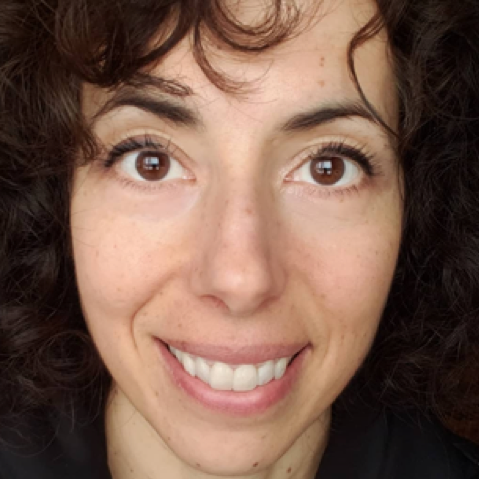
Jennafer Vandevegte, PT, MSPT
Visit types: Office/Hospital
Spoken languages: English
Interpreting services for other languages: Yes
Philosophy of care and typical treatment strategies:
It’s an honor and a privilege to walk with someone on their journey to improve their pelvic health. I use a team approach with my patients taking into account their unique story and goals. I utilize multiple approaches such as visceral, nervous system down regulation, my official work, yoga, stretching, meditation and mindfulness, diet and nutrition and self care.
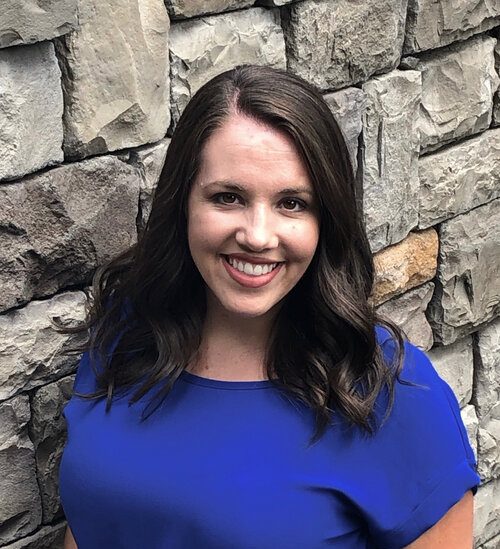
Jessica Reale, PT, DPT
Visit types: Office/Hospital, and Virtual
Spoken languages: English
Interpreting services for other languages: Yes
Philosophy of care and typical treatment strategies:
I believe most people with endometriosis require a multidisciplinary approach. I work with amazing excision specialists and other physicians specializing in pelvic pain. As far as physical therapy, my approach is guided by current evidence in pain-science. My goal is to help people move more freely with less pain. I love yoga and use many of these movements in my practice. I also enjoy gentle manual therapies. I use a variety of manual therapy techniques including visceral mobilization, myofascial release, scar tissue mobilization, connective tissue mobilization, positional release techniques, cupping, and dry needling. I also help patients through behavioral education and coaching for mindfulness, meditation and optimizing bowel, bladder and sexual health. I use both external and internal techniques, and my goal is to help my patients learn self-care strategies and optimize their health.

Caitlyn Rumsey, PT, DPT
Visit types: Office/Hospital
Philosophy of care and typical treatment strategies:
As a pelvic health physical therapist who also has endometriosis, I believe I offer a unique perspective for treatment with a personal connection. I truly empathize with all the aspects of life touched by endometriosis and pelvic pain. My practice offers holistic evaluation and treatment looking beyond the pelvis at the movement system from head to toes. The care is patient-centered with the patient as a crucial part of the healthcare team. I help my patients to navigate their care and value autonomy with healthcare education. Individuals with endometriosis often have overactive nervous systems and responses. It is important to use gentle treatment modalities for the sensitized system. This may include external and internal myofascial work, yoga, breathwork, and desensitization of the nervous system.
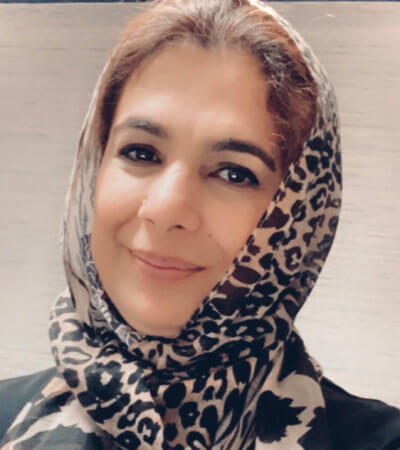
Shaista Ambreen, PT, DPT
Visit types: Office/Hospital
Philosophy of care and typical treatment strategies:
I believe PT can play a greater role in treating endometriosis patients. We can apply many techniques to overcome the issues related to Endometriosis.
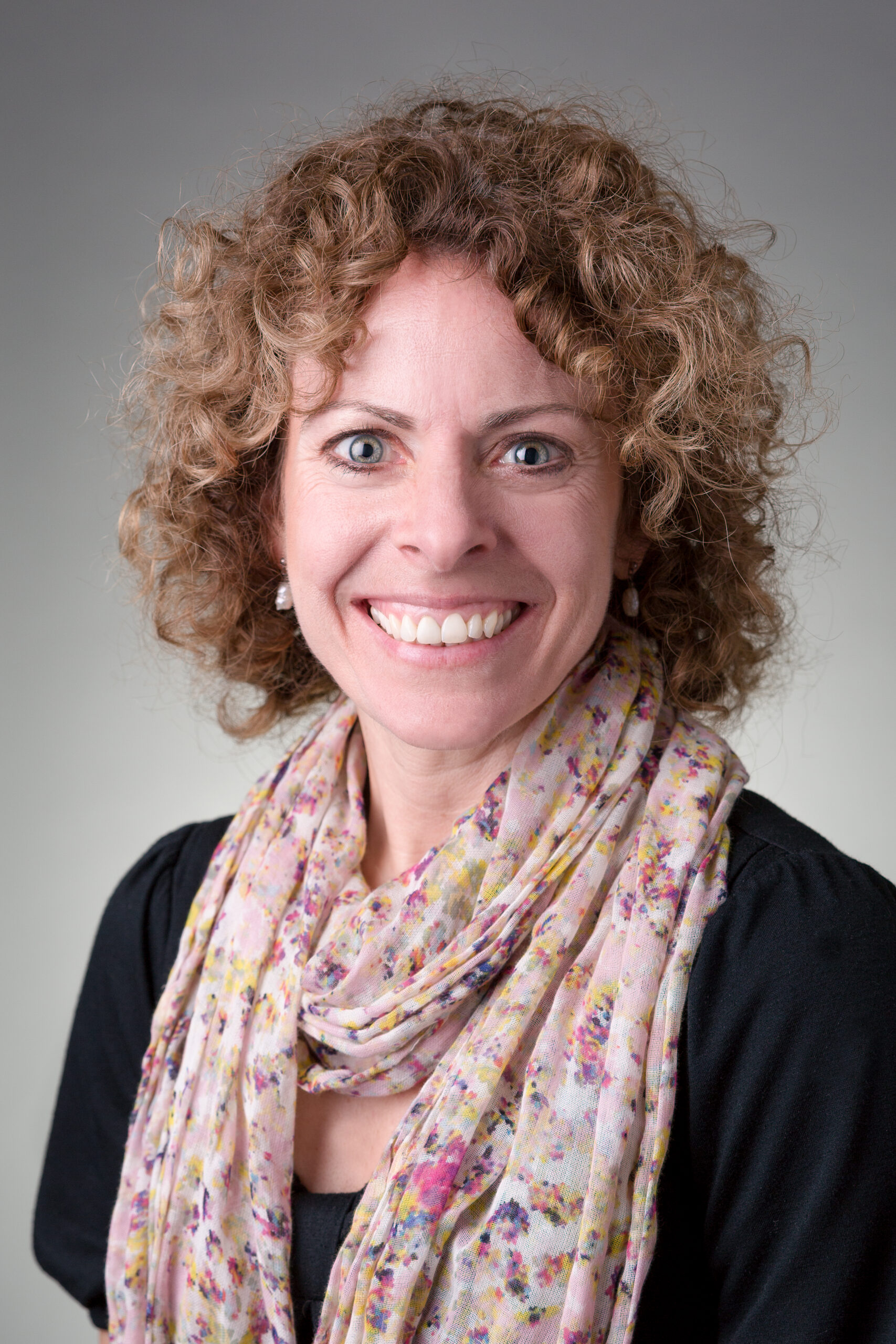
Terri Sullivan, PT, DPT
Visit types: Office/Hospital
Spoken languages: English
Interpreting services for other languages: No
Philosophy of care and typical treatment strategies:
I would probably call myself a ‘Jane of all Trades’ as I have learned several different specialties to help a variety of patients. Now, as a physical therapist with 20+ years’ experience, I have settled into devoting my skills to helping women with pelvic floor issues. I also have a very strong background in orthopedic physical therapy, which not only helps in women’s health but makes me versatile and able to assess a multitude of injuries and conditions. When caring for my clients, I listen closely to formulate the most effective way to address their concerns and improve their function. I like to address the whole musculoskeletal system during treatment. Everything is connected and can be a cause of source of a patient’s problem. Lastly, I am an exuberantly happy person, and I will try to make your session not only beneficial, but fun. Regarding treatment of endometriosis, I use a multimodal approach to help my patient with their issues. After performing a thorough examination, I design a plan of care that is discussed with the patient. Sessions can include manual therapy (myofascial release, soft tissue mobilization and visceral mobilization), postural education, functional and movement retraining, exercises, pain management, and nutritional considerations.
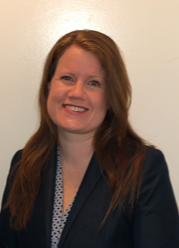
Mary Hughes-Johnson, PT, DPT
Visit types: Office/Hospital, At Home
Spoken languages: English
Interpreting services for other languages: No
Philosophy of care and typical treatment strategies:
I am a manual therapist who focuses mainly on myofascial release techniques, in order to improve tissue mobility and progress with strengthening when tolerated.

Susan Clinton, PT, DScPT
Visit types: Office/Hospital, Virtual
Spoken languages: English
Interpreting services for other languages: No
Philosophy of care and typical treatment strategies:
I take an integrated holistic Biopsychosocial approach for individualized care for the client. I keep up to date with the current literature of movement science and employ a full-body approach to the movement system and NOT a regional approach. Considerations for my clients are within the biology of the person including cardiovascular (optimizing HR, HRV), neurology (HPA axis, gut-brain connections, Autonomic NS and motor planning/brain protection and neuroscience of pain application, mindfulness/meditation, neural tension, and the peripheral NS), Endocrine (Nutrition, Life-style as medicine, sleep optimization and other factors to help with endocrine optimization), Musculoskeletal (Movement system optimization, exercise balance, loading/strengthening and soft tissue techniques for tissue changes, scar) and Visceral System (optimization of the urinary and GI system functioning, respiratory with breath/voice optimization and CV/ANS as above – including visceral mobilization). My practice is patient-centered with the goal to facilitate my clients return to self-efficacy and care with facilitated communication with the entire health care team.

